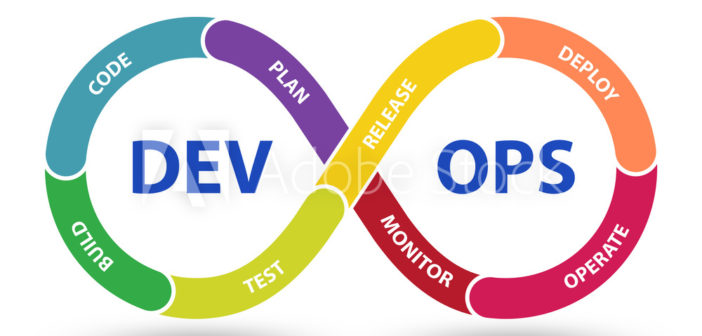DevOps Institute, a global professional association for advancing the human elements of DevOps, today announced the release of the “Upskilling 2021: Enterprise DevOps Skills Report.” In its third year, the report examines DevOps hiring trends around the globe within enterprise IT organizations of all sizes. In addition to DevOps roles, the report examines the top skill domains and associated must-have skills within these domains, which are essential for a successful DevOps journey. Data in the 2021 report is based on research gathered from an open survey of more than 2,000 respondents from organizations of all sizes around the world.
The report is available for download at https://info.devopsinstitute.com/2021-upskilling-report-download
“DevOps Humans remained in-demand, despite a global pandemic that upended our ways of life and business,” said Jayne Groll, CEO of DevOps Institute. “This is a testament to the importance and value of DevOps transformations at companies across industries and around the globe. The findings in the 2021 Upskilling Report give us clarity into the evolution of DevOps Humans and how IT organizations will shape their talent-based structures in 2021 and beyond.”
The research and data analysis was led by DevOps Institute’s Chief Research and Content Officer, Eveline Oehrlich, with support from Platinum Sponsor, GitLab; Gold Sponsors, CloudBees and The LLPA; Bronze Sponsors, Tricentis and HCL Software; and Media Sponsor, MediaOps.
Key Findings from the ‘Upskilling 2021: Enterprise DevOps Skills Report’ include:
- Stop talking about being a learning organization and start acting. Seventy percent of survey respondents said that a learning organization was a predominant model–the DevOps way of working–while 45 percent leaned toward a safety culture. And, while 39 percent of IT teams are still struggling with a defined and systematic upskilling program, 52 percent of organizations already have a formally designed upskilling program or are currently developing one.
- Hiring for DevOps initiatives is high. COVID-19 has not stopped the hiring of DevOps roles. Sixty percent of organizations are recruiting now or in the future.
- Capabilities and skill development must go hand in hand. DevOps teams must assess which critical capabilities they can perform or not, across key areas. But capabilities must be supported with skilled DevOps Humans. Upon examining the priority domain skill categories, the survey data shows that the essential combination of skills for a successful DevOps human are across the automation, human, technical, functional, process and framework knowledge skill domain categories.
- Pressure continues to force old IT operating models to change. As new forms of hybrid computing are on the rise, it gives application developers more freedom to choose tools and programming languages. As this increases, IT operations teams not yet practicing DevOps feel more pressure to embrace DevOps.
- Value Stream Management (VSM) skills are seen by 39 percent of respondents as a must-have skill within the process and framework skill domain. DevOps and Agile practices have been adopted to innovate and create more iterative approaches for software development and delivery. However, the value must come through the customer lens. This is where VSM comes in. In simple terms, understanding and examining value streams of software being delivered end-to-end enables teams to make complex processes visible and provides the ability to pivot towards further value improvement.
- The adoption of Site Reliability Engineering (SRE) as an operating model is 22 percent in 2021 compared to 15 percent in the previous year. SRE is needed to continue automation and reduce toil. Forty-seven percent of the survey respondents voted SRE skills as a must-have skill in the process and framework skill domain this year compared to 28 percent in the previous year’s survey.
- DevSecOps is a key trend. Security is integral to protect the business and enforce internal and external policies of the company. DevSecOps makes security an equal consideration alongside development and operations. According to survey participants, DevSecOps achieved a must-have percentage vote of 56 percent in the automation tool category.
- New models such as DataOps and ModelOps are showing up. DataOps was voted by 27 percent as a must-have skill domain in the automation tool skill domain, whereas ModelOps received 22 percent. These new models are shaping the ongoing iterations of DevOps operating models.
- DevOps Engineers are the most in-demand job title this year. It represents 53 percent of recently recruited DevOps positions. The DevOps engineer’s responsibility might differ from company to company, but all should be engaged in upskilling themselves and their teams.
“Our research shows that the future of DevOps at any organization is dependent upon the breadth and depth of capabilities and the supporting skills of the team members and within the team,” said Oehrlich. “A successful DevOps journey (actually any journey) has the DNA of a learning organization which means there is a commitment of continuous learning across all layers and players. Team members have changed their mental models to look at different views working in a collective and collaborative team. For example, problems and mistakes are opportunities to learn. This ability to continuously learn enables individuals and teams to work better together across boundaries regardless of process, team or technology boundaries. This mental continuous learning model will take time to develop, adapt and apply. Still, each individual can bring their skills and abilities to shape the bigger collective effort of DevOps. For everyone in IT, this is an exciting time to unlock your power, abilities and skills to accelerate your DevOps journey and that of your team and company. DevOps Human readiness and organizational learning must take on new importance now and in this next normal.”
Image licensed by: Pixabay.com
Related News:
Checkov 2.0 Launches as the First Open-Source Cloud Infrastructure Scanner With Dependency Awareness


